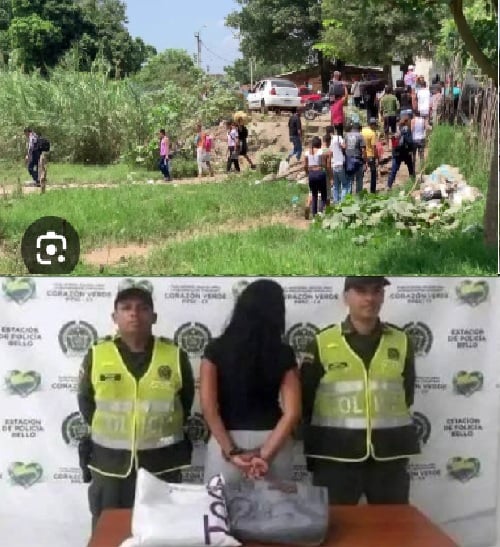Mexico City has been shaken by yet another case of femicide, this time involving the disappearance and death of 12-year-old Perla Alison, whose body was discovered days after she was reported missing. The heartbreaking discovery has ignited nationwide outrage, underscoring the ongoing crisis of violence against women and girls in the country.
From a Simple Errand to a National Search
Perla Alison was last seen in her neighborhood of Santa Martha Acatitla when she asked her mother for permission to buy candy at a nearby store. It was a small, everyday request—something any child might ask. But when she failed to return home, her family’s worst fears began to unfold.
Authorities swiftly activated an Amber Alert, and her case quickly spread across social media. Neighbors, relatives, and volunteers organized searches, plastering streets with her photo and urging anyone with information to come forward. For days, hope remained that Perla would be found safe.
But that hope was shattered when a foul odor coming from an abandoned property near the Constitución de 1917 metro station prompted a local resident to alert authorities.
A Gruesome Discovery
Responding officers from the Secretariat of Citizen Security (SSC) sealed off the area while forensic experts from the Attorney General’s Office carried out the grim task of recovering the body. Initial reports confirmed the worst: it was Perla Alison.
Officials stated that her remains bore signs of violence. While investigators have yet to release the official autopsy results, preliminary findings suggest she may have been abused before being killed. Authorities are treating the case as femicide—the most extreme form of gender-based violence.
The investigation is now focused on tracing her final movements and identifying those responsible. Detectives are analyzing surveillance footage, interviewing residents, and reviewing any possible leads that surfaced during the search.
A Nation’s Outrage
News of Perla’s death spread rapidly, triggering an outpouring of anger and grief on social media. Her photo—smiling, young, and full of life—has become a symbol of the thousands of women and girls who disappear in Mexico each year.
Feminist groups, community organizations, and citizens have staged protests demanding justice, not only for Perla but for all victims of femicide. Outside government offices and in public squares, candles and posters bearing her name have been placed alongside slogans like “Ni Una Menos” (“Not One Less”), the rallying cry of Latin America’s movement against gender-based violence.
Activists point out that Perla’s story follows a chillingly familiar pattern: a young girl goes missing in plain daylight, authorities issue an alert, families desperately search, and ultimately, the case ends in tragedy. They argue that while Amber Alerts are a step forward, they are not enough without broader systemic changes, including faster investigations, stronger prevention strategies, and more protection for vulnerable communities.
Mexico’s Ongoing Femicide Crisis
The case has reignited conversations about Mexico’s staggering rates of violence against women and girls. According to official statistics, an average of 10 women are killed every day in the country, and thousands more are reported missing each year. Many of these cases involve minors.
Despite public commitments from government officials to combat the crisis, critics argue that justice is often slow or elusive. Families of victims frequently accuse authorities of negligence, delayed responses, or lack of resources in the crucial first hours after a disappearance.
Perla’s death has once again highlighted this systemic failure. “We cannot keep waiting until a foul smell leads us to our daughters,” one activist said during a vigil. “We need prevention, protection, and accountability.”
A Family in Mourning, a Community in Fear
For Perla’s family, the grief is immeasurable. What began as an ordinary moment—a child asking for candy—has ended in tragedy no parent should endure. Her mother, who had raised alarms immediately after her disappearance, is now left to seek justice for her daughter in a system many say is broken.
Neighbors in Santa Martha Acatitla describe the community as devastated. Parents have grown increasingly fearful of letting their children leave the house alone, even for simple errands. The sense of safety that should exist in every neighborhood has been fractured.
Demands for Change
Civil society groups are urging authorities to move swiftly, not only to capture those responsible for Perla’s death but also to implement measures that prevent similar tragedies. Among their demands are:
- Improved early response protocols when minors are reported missing.
- Stronger coordination between police, prosecutors, and community networks.
- More resources for shelters and prevention programs in vulnerable areas.
- Swift trials and harsher penalties for perpetrators of gender-based violence.
For many, the outrage is not only about one girl’s death but about the repeated failures of a system unable to protect its most vulnerable.
A Call for Justice
As vigils are held and investigations continue, the name Perla Alison now joins the long list of victims whose lives were cut short by violence. Her case has become a rallying cry for citizens demanding urgent reforms.
Her story is a tragic reminder that behind every headline lies a family shattered, a community scarred, and a nation forced to confront the realities of a crisis that shows no signs of ending without decisive action.
Mexico grieves. And Mexico demands justice.

